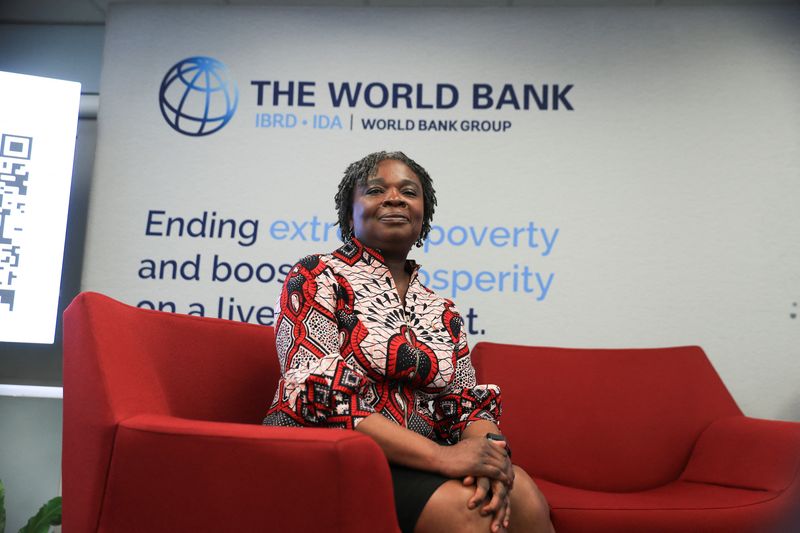
©Reuters. Victoria Kwakwa, World Bank Regional Vice President for Eastern and Southern Africa, speaks during an exclusive interview with Reuters, in Harare, Zimbabwe, March 1, 2024. REUTERS/Philimon Bulawayo
2/4
By Nyasha Chigono
HARARE (Reuters) – Zimbabwe needs to make its fiscal and monetary policy more predictable to instill confidence in its depreciating currency, a senior World Bank official said on Friday.
Progress could be made by moving away from the central bank’s “quasi-fiscal operations,” Victoria Kwakwa, the World Bank’s regional vice president for Eastern and Southern Africa, said in an interview with Reuters.
It did not say what those operations were, but the International Monetary Fund said last month that the central bank should reduce its non-core activities, which include printing money and borrowing from the government.
The Zimbabwean dollar has lost more than 60% of its value against the US dollar this year, while annual inflation stands at 47.6%, in a country still marked by memories of hyperinflation under the former longtime leader Robert Mugabe.
“That’s the crux of the problem, that there hasn’t been trust,” Kwakwa said.
“And every time people get (the currency), they try to get rid of it to get something else and so it constantly loses value.”
The local currency was revived in 2019 after a decade ofdollarization, but quickly lost value, and soon after authorities again allowed the use of foreign currencies in domestic transactions.
The central bank and finance ministry said last month they were working on measures to stabilize the currency and were considering linking the exchange rate to the price of gold, among other possible measures.
“The predictability of policy… the improvements that are being made by moving away from quasi-fiscal operations, all of that will help build more confidence,” Kwakwa said.
The World Bank is “committed” to an ongoing process from 2022 for Zimbabwe to write off billions of dollars in outstanding debts to it and other international lenders, he said.
Meanwhile, Kwakwa said she was “pleased” that China and India had signed debt restructuring deals with Zambia, the announcement of which by the country’s president last week raised hopes that it may be nearing the end of its default lasted more than three years.
“With official creditors out of the picture, the government now has the opportunity to focus more on getting a deal with commercial creditors. And we hope that this too is soon in sight,” he said.